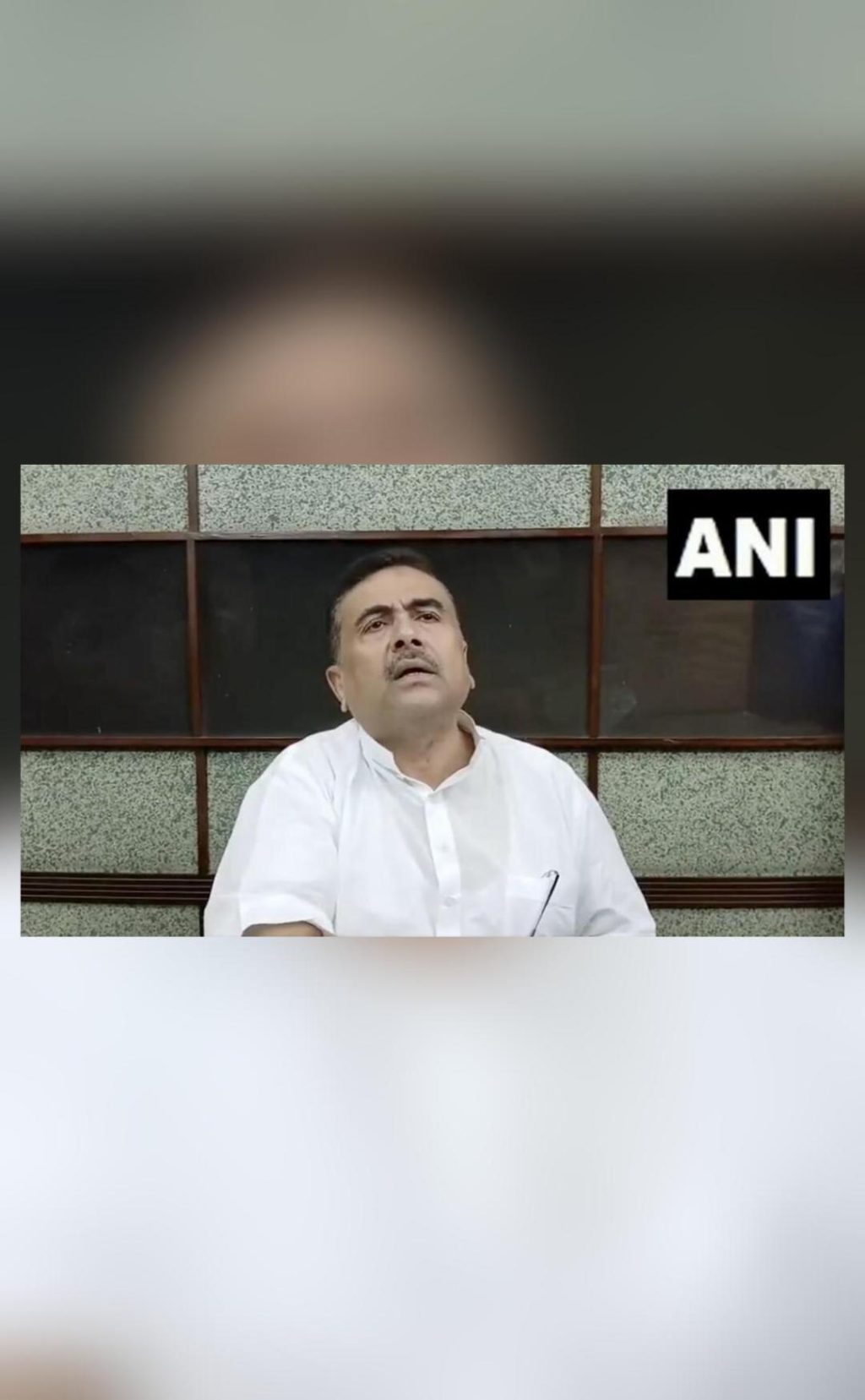
Not just BJP, all nationalist marks Samvidhaan Hatya Diwas: Suvendu
June 25th, a day that marks a dark chapter in Indian history, is being observed as Samvidhaan Hatya Diwas by many nationalist citizens across the country. This day commemorates the brutal suppression of democracy and human rights during the Emergency imposed by the then-Indian Prime Minister Indira Gandhi in 1975.
Reacting to Chief Minister Mamata Banerjee’s objection to observing Samvidhaan Hatya Diwas, BJP leader Suvendu Adhikari made a bold statement, saying, “It is a black day. We observe this every year. Not only the BJP but also every nationalist citizen observes it.” He further added that people jailed during the Emergency in Bengal are honored annually and will be this year too.
Suvendu’s statement comes as a response to Mamata Banerjee’s assertion that the BJP is trying to divide the country by observing this day. The West Bengal Chief Minister had stated that the Emergency was a moment of national shame, and it is incorrect to observe it as a black day. However, Suvendu’s view is that it is essential to remember and learn from the past to ensure that such atrocities are not repeated.
The Emergency, imposed by Indira Gandhi’s government from June 25th, 1975, to March 21st, 1977, was a period of unprecedented suppression of individual freedoms and democratic institutions. During this time, thousands of people were arrested and jailed without trial, including many prominent politicians, journalists, and activists. The government also imposed strict censorship, and any form of dissent was brutally crushed.
The Emergency was a result of a political crisis that had been building up in the country. Indira Gandhi’s government had faced opposition from various quarters, including the judiciary, the media, and the political opposition. The government had also been facing criticism for its handling of the Bangladesh Liberation War, which had led to a massive influx of refugees into India.
In response to the growing opposition, Indira Gandhi’s government imposed the Emergency, citing national security as the reason. However, the move was widely seen as an attempt to consolidate power and silence the opposition. The Emergency was marked by widespread human rights abuses, including the use of torture, forced sterilization, and forced labor.
The Emergency had far-reaching consequences for Indian democracy. It led to a decline in the credibility of the government and the institutions of democracy. The opposition parties, which had been struggling to find a united voice, were able to come together and challenge the government.
The Emergency also led to a significant increase in the popularity of Indira Gandhi’s son, Rajiv Gandhi, who became a symbol of opposition to the government. Rajiv Gandhi would later go on to become the Prime Minister of India and play a key role in the country’s economic liberalization.
The Emergency ended on March 21st, 1977, when Indira Gandhi’s government was defeated in the general elections. The new government, led by Morarji Desai, took steps to restore democracy and human rights in the country.
Today, Samvidhaan Hatya Diwas is observed by many nationalist citizens as a reminder of the importance of democracy and human rights. The day is marked by various events, including seminars, workshops, and rallies. People also pay tribute to the victims of the Emergency, including those who were jailed, tortured, and killed during that period.
In West Bengal, the day is marked by the state government’s decision to honor the people who were jailed during the Emergency. The government has announced that it will be conferring honors on the families of those who were imprisoned during that period.
However, the day is not without controversy. The West Bengal Chief Minister has objected to the observation of Samvidhaan Hatya Diwas, saying that it is a divisive move. The Chief Minister has also accused the BJP of trying to create a rift in the country by observing this day.
Suvendu Adhikari’s statement has sparked a heated debate in the state. While some have criticized the BJP’s move as an attempt to create divisions, others have hailed it as a necessary reminder of the importance of democracy and human rights.
In conclusion, Samvidhaan Hatya Diwas is a day that marks a dark chapter in Indian history. It is a reminder of the importance of democracy and human rights, and the need to protect them from erosion. While the day may be controversial, it is essential to remember the sacrifices of those who fought for democracy and human rights during the Emergency.






